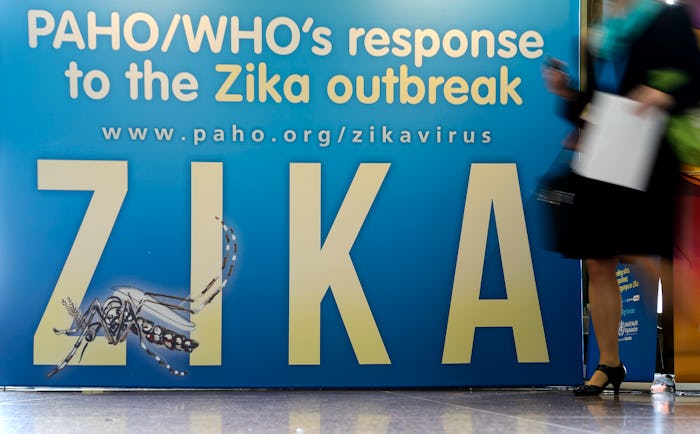As the summer is officially here and it's likely that Zika mosquitoes will be buzzing around, it's likely that you're wondering about how to protect yourself. It's probably time to invest in some insect repellant, because you can get Zika and not know it. If you're planning on getting pregnant or sleeping with someone who is, that can be some scary news. Let's just get this out of the way — so far, Zika is really only dangerous for pregnant women and their babies, as more and more studies link the virus and birth defects like microcephaly and other neurological disorders. If you're not pregnant, the Centers for Disease Control say it's possible to not know because not all people will show symptoms.
The symptoms, if they do show, are fairly mild and tend to pass within a two week time frame. Fever, rash, joint pain, and conjunctivitis are the most common. The good news is that symptoms or not, the Zika virus usually passes within that time period and once you've been infected, it's likely that you're protected from infections later in life. The fact that Zika can be sexually transmitted means that, if you're sleeping with people who travel to areas where the mosquito is hanging out, you can get it, too. Condoms, people, condoms.
As of now, there haven't been any locally reported cases of Zika. All of the cases in the United States so far are from people who travel to South American or the Caribbean. But the CDC thinks the bugs are making their way up to a lot more states than you might have initially thought. If you're headed to Florida, in say, July that could be a problem. If you think you've been infected or could have been, you can go to your doctor and they can give you blood tests to find the virus.
There's no treatment or vaccine for Zika. If you're pregnant, there are other tests and precautions that your doctor will take to monitor the fetus. Otherwise, lots of rest, hydration, and making sure you don't get bit by mosquito again in the first week of your diagnosis is the best way to recover. There's not a whole lot to be done right now.
Which can be sort of scary, especially for women who might have been thinking about planning a family this year. The risks factor, for a fetus, is pretty high. Otherwise, the most everyone else can do is try to not get bit, follow travel warnings from the CDC, and practice safe sex to keep the virus at bay. Hopefully, emergency Zika funding can start to kick in and work on a vaccine can commence, although Congress took a long weekend without passing the bill, so it might take a little longer than most would like.
Until then, bug spray is your best friend.
